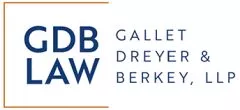The ethical principle behind escrow funds is simple—the funds belong to a client or a third party, not the attorney. The attorney, who is a fiduciary, cannot commingle escrow funds with the attorney's own funds. Escrow funds cannot be used for any personal purpose of the attorney. 22 NYCRR 1.15(a).
Appellate Division rules (22 NYCRR 1300.1) set forth requirements for dishonored and overdraft check reporting. Banks must agree to report any case in which an instrument (almost always a check, so I will use that term) drawn on an escrow account is presented for payment and there are insufficient funds to pay the check, regardless of whether the bank pays or bounces the check. The rule applies only if the check is otherwise properly payable. See Monreal v. Fleet Bank, 95 N.Y.2d 204 (2000); UCC 4-401.
Roping in the Banks
New York courts have no authority to regulate banks. The Appellate Division does so indirectly by prohibiting attorneys from depositing escrow funds at a bank unless the bank agrees to file a report (an NSF Report) when an escrow check is presented against insufficient funds. A list of banks who have so agreed, and thus are authorized to accept escrow accounts, is available at http://www.nylawfund.org/APPLST%20140.pdf. Each attorney must make sure that its bank is authorized to accept escrow accounts before maintaining an escrow account at that bank.
What Triggers NSF Reports?
If an escrow check is presented for payment and the check would create an overdraft if it were paid, then even if the bank elects to pay the check, the bank must file an NSF Report with the Lawyers' Fund for Client Protection, unless the check is not otherwise properly payable. The Lawyers' Fund sends the report to the attorney disciplinary committee unless the bank withdraws the report within 10 days because of a bank mistake.
Common Misunderstandings
The rule has been fraught with misunderstandings. Here are some common issues.
1. Can an attorney link an operating account with an escrow account so that funds in the operating account cover any overdraft in the escrow account? Linking an operating account could allow an attorney to hide the misuse of escrow funds by covering a check with his or her own funds. Attorneys argue that this is in the best interests of the client, but experience indicates that it merely postpones the inevitable.
2. What if the attorney deposits cash to cover a check the morning after the check is presented for payment? As the rule was amended in 2021, the mere presentation of a check for payment when there are insufficient funds triggers the obligation to file an NSF Report. The subsequent deposit does not affect the bank's obligation to report.
3. How quickly does a bank file the report? Banks must file the report within five banking days after an NSF check is presented for payment.
4. Three days after a bank files an NSF report, the attorney realizes that he accidentally deposited escrow funds into the wrong account. Is the bank allowed to withdraw the report? A bank may withdraw an NSF Report only if there is a bank error, but not if there is an attorney error. The attorney will have to explain the error to the disciplinary committee.
5. What if a check is presented at the end of the day against uncollected funds represented by a deposit made that morning? If the bank pays the check because it considers the deposit "available" under its normal availability policy (12 CFR 229.16), the check should not be reported. If the bank bounces the check or does not consider the funds to be available but pays the check as an accommodation to the attorney, it must be reported. If the check is paid, and the related deposit subsequently bounces, then the attorney must reimburse the bank (Greenberg, Trager & Herbst v. HSBC Bank USA, 17 N.Y.3d 565 (2011)), but there is no reporting requirement.
6. What happens if a bank returns an escrow check for lack of endorsement or for a forged maker's signature? No NSF Report is required. A check that is returned unpaid because it is not "properly payable" for any other reason does not trigger the reporting requirement. This is true even if there are insufficient funds to cover the check. The check is not "properly payable," so the insufficiency of funds is irrelevant.
7. How about checks returned because of a stop payment order? Once again, the check is not properly payable, so no bounced check report is required regardless of whether there are funds in the account sufficient to cover the check.
8. Is an NSF report required when a bank returns an ACH debit due to insufficient funds? An ACH debit is not an "instrument" under the UCC definition, so no NSF Report is required.
9. How about master escrow accounts used for disbursements, with multiple subaccounts for each client? Subaccounts may not be linked so that the subaccount of one client pays funds owed to another client. This is the same as linking an operating account with an escrow account. If a master disbursement account has subaccounts for separate clients for record keeping purposes, the attorney must assure that the correct subaccount is used to fund a check presented against the master disbursement account.
10. To reduce fraud, many banks are implementing a positive pay system under which an attorney advises the bank in advance which escrow checks should be paid. How does the rule work with positive pay? When positive pay is implemented, an attorney advises the bank in advance, normally through a data upload to the bank's website, which escrow checks should be paid. If a check is not on the list, it is returned unpaid.
a. If a bank bounces a check because there is a discrepancy between the data the attorney provides and the actual check, is there an NSF report? Not if there is money in the account to cover the check. The bank, as agent for the depositor, is not authorized to pay the check. It gets complicated if the uploaded data says the check was written for $100 but, when presented for payment, the amount has been raised to $100,000, which would create an overdraft. The bank is bouncing the check because it is not authorized to pay it. The bank has reason to believe, based upon the data from the attorney, that the check is not "properly payable." Therefore, I believe that no report needs to be filed, but this is debatable.
b. What happens if the attorney does not upload any information regarding checks written that day? If there are sufficient funds in the account to pay a check as presented, but the bank returns it because it has not gotten "positive pay" notice, no NSF Report is required. If the check would create an overdraft and the bank has no data on the check, then the bank has no evidence that the check is not "properly payable." Therefore, arguably, a report should be filed, but again this is debatable.
However, such a check could be completely counterfeit. I have advised banks to contact the customer immediately and inquire as to whether the check is bona fide. If the customer says, "No, don't pay the check, it is a fake." then the bank should return the check and not file an NSF Report, because it has reason to believe that the check is not properly payable. However, if the customer says, "I forgot to upload but the check is proper." then the attorney's honesty compels the bank to file an NSF Report.
A bank can't go overboard to keep an attorney happy by allowing the attorney to cover bad checks or hide escrow account shenanigans. Don't expect a branch manager to ignore the rules and allow you to cover a bounced check on an escrow account, even if the bank allows regular business customers to do so.
Conclusion
An attorney who follows a few simple ethical precepts can easily avoid problems. Money received in which specified individuals have an interest may be used solely at the direction of those individuals. Attorneys can't borrow it, regardless of the intention to return the funds three days later. The interest earned also belongs to the client or a third party, not the attorney. In addition, the funds can't be used for the benefit of, or at the direction of, anyone other than the individuals who have an interest in it.
Finally, don't be in a hurry to disburse escrow money immediately after you receive it, even though the rules require that you promptly disburse it. Waiting a few extra days to make sure that a check is finally paid is a small price to pay for avoiding fraud. If someone wants you to disburse escrow funds immediately after you receive them, have the funds sent to you by wire transfer, not a paper check.
The content of this article is intended to provide a general guide to the subject matter. Specialist advice should be sought about your specific circumstances.

